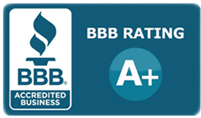
Effective January 1, 2023, Arizona will allow persons to file petitions to seal certain case records related to criminal offenses, in some states this is referred to as expungement*. This new law removes the case record from public access and allows an individual to state that they have never been arrested for, charged with, or convicted of a crime that is the subject of the arrest or conviction, including in response to questions on employment, housing, financial aid or loan applications. There are specific exceptions to when a person might be required to provide disclosure of a prior offense. Some examples of when a person might be required to disclose their criminal record after it was sealed are when applying for a fingerprint card, applying for specific positions including law enforcement jobs, working with children or vulnerable adults, or if state or federal law requires it be disclosed.
The criteria for sealing a person’s case record is set forth in ARS 13-911(A).
- Convicted of a criminal offense and has completed all of the terms and conditions of the sentence that was imposed by the court, including the payment of all monetary obligations and restitution to all victims.
- Charged with a criminal offense and the charge was subsequently dismissed or resulted in a not guilty verdict at a trial.
- Arrested for a criminal offense and no charges were filed.
Notwithstanding your record being sealed, your offense may still be used against you in certain circumstances. For example under ARS 13-911(B), the offense may still be:
- Alleged as an element of an offense.
- Used as a historical prior felony conviction.
- Admissible for impeaching any party or witness in a subsequent trial.
- Used to enhance the sentence for a subsequent felony.
- Used to enhance the sentence pursuant to sections 28-1381 and 28-1382.
- Pleaded and proved in any subsequent prosecution of the person by this state or a political subdivision of this state.
- Used as a conviction if the conviction would be admissible if the conviction was not sealed.
For all current cases being processed through the court system, at the time of sentencing, the court shall inform the person on the record that the person may be eligible to petition the court for an order that seals all case records of the person’s arrest, conviction and sentence.
The time frame for waiting to ask a court to seal the case records is as follows:
A person who was convicted of an offense and who has not subsequently been convicted of any other offense except a misdemeanor violation included in title 28, excluding a conviction for a violation of section 28-1381, 28-1382 or 28-1383, may petition the court to seal the person’s records of arrest, conviction and sentence after the person completes all of the terms and conditions of the person’s sentence, including paying all fines, fees and restitution that are ordered by the court, and the following period of time has passed since the person completed the conditions of probation or sentence and was discharged by the court:
- Ten years for a class 2 or 3 felony.
- Five years for a class 4, 5 or 6 felony.
- Three years for a class 1 misdemeanor.
- Two years for a class 2 or 3 misdemeanor.
If the person had a prior historical felony conviction, a person may petition the court to seal the record of the arrest, conviction and sentence after an additional five years.
If the person had two or more offenses, a person may not petition the court to seal case records until the period of time prescribed has passed for each conviction.
You are not eligible to petition the Court to seal your case record for the following offenses:
- If you were sentenced as a dangerous offender under ARS 13-704.
- If you were convicted of a dangerous crime against children under ARS 13-705.
- If you were convicted of a serious offense or violent or aggravated felony under ARS 13-706.
- If you were convicted of any offense that has either of the following as an element of the offense:
(a) The discharge, use or threatening exhibition of a deadly weapon or dangerous instrument.
(b) The knowing infliction of serious physical injury on another person.
- If you were convicted of sex trafficking under ARS 13-1307.
- If you were convicted of a class 2, 3, 4 or 5 felony offense that is included in chapter 14 or 35.1 of this title.
Finally, it is important to note that if the Court denies a petition to seal your case record, you may not file a new petition until three years after the date of the denial.
If you think you are eligible or want to know if you meet the criteria to petition to have your conviction sealed, feel free to contact the attorneys at Castillo Law at 602-795-6701 or for emergencies at 480-206-5204.
*Arizona does not have complete expungement of a person’s record in the sense that the person’s record is wiped clean. However, the new law works similarly to expungement but has certain exceptions.









